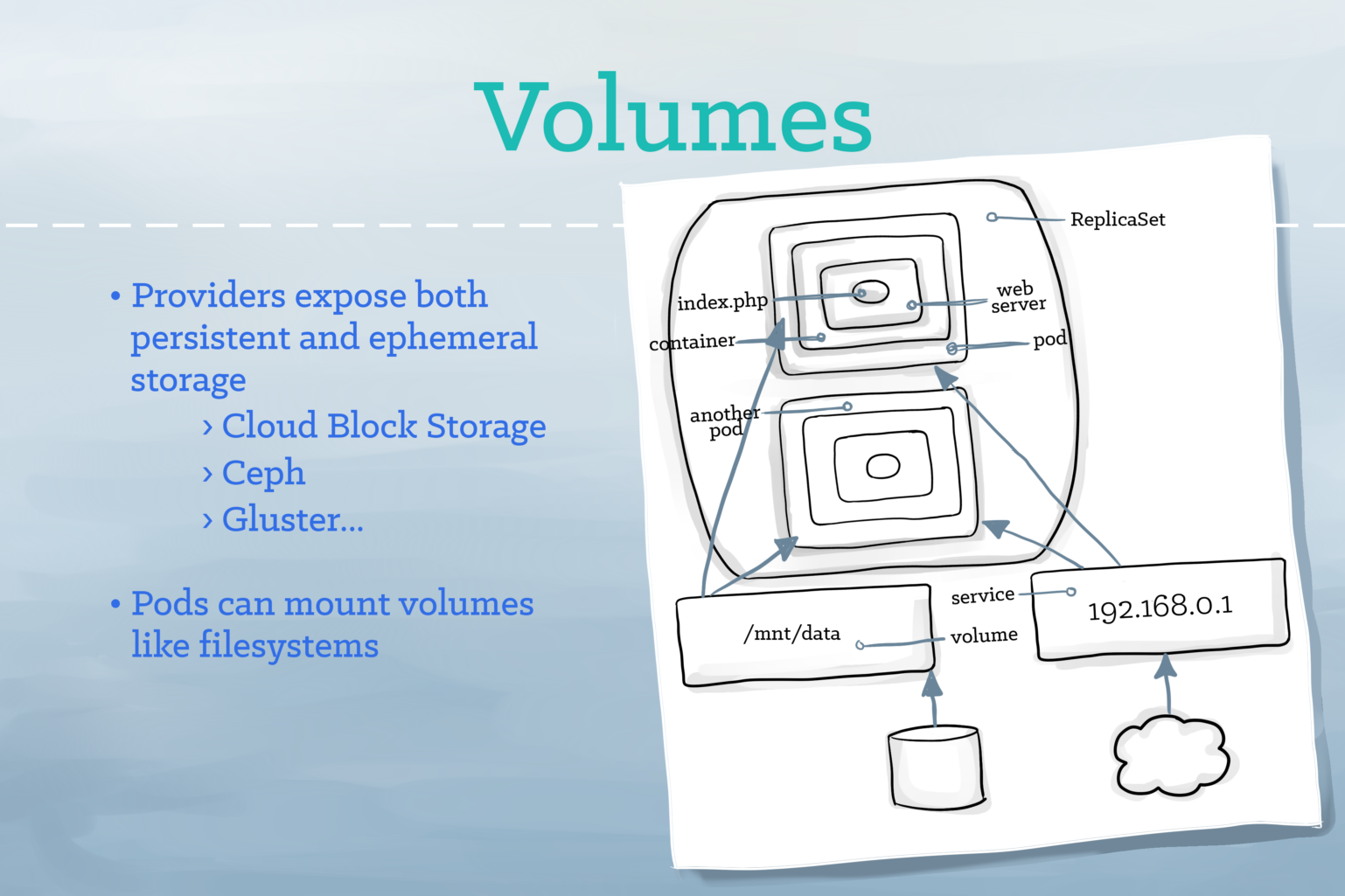The storage management system

Review previous parts of this series for better understanding:
This is the sixth part of the Kubernetes series. In this part I will try to add more insights into Kubernetes Volume
Volume
Volumeis simply an abstraction of data in the form of file and directory within a Pod. It exists as long as its Pod exists.
The lifecycle of a Volume is tied to the lifecycle of the Pod, but not to that of a Container. If a container within a Pod dies, the Volume persists and the newly launched container will be able to mount the same Volume and access its data. When a Pod gets restarted or dies, so do its Volumes, although if the Volumes consist of cloud block storage, they will simply be unmounted with data still accessible by future Pods.
To preserve data across Pods restarts and updates, the PersistentVolume (PV) and PersistentVolumeClaim (PVC) objects are used.
StorageClass defines different types of storage offered which are categorized as "classes" setup by the Cluster Administrator. Different 'classes" might map to quality-of-service levels, or to backup policies, or to arbitrary policies. Kubernetes itself is unopinionated about what classes represent. This concept is sometimes called "profiles" in other storage systems.
PersistentVolume abstracts the details of the implementation of the storage, be that NFS, iSCSI, or a cloud-provider-specific storage system that is provisioned manually by cluster admin or dynamically using Storage Classes. It is a resource in the cluster just like a node is a cluster resource. PersistentVolume are volume plugins like Volumes, but have a lifecycle independent of any individual Pod.
PersistentVolumeClaim is a request for storage by a user. It is similar to a Pod. Pods consume Node resources and PersistentVolumeClaim consume PersistentVolume resources. Pods can request specific levels of resources (CPU and Memory). PersistentVolumeClaim can request specific size and access modes (e.g., they can be mounted ReadWriteOnce, ReadOnlyMany or ReadWriteMany). PersistentVolumeClaim mounts the PV at the required path. The spec for a PVC contains the following items:
accessModeswhich vary by the use case. These are:ReadWriteOnce– mounts the volume as read-write by a single nodeReadOnlyMany– mounts the volume as read-only by many nodesReadWriteMany– mounts the volume as read-write by many nodes
resources– the storage space that you require